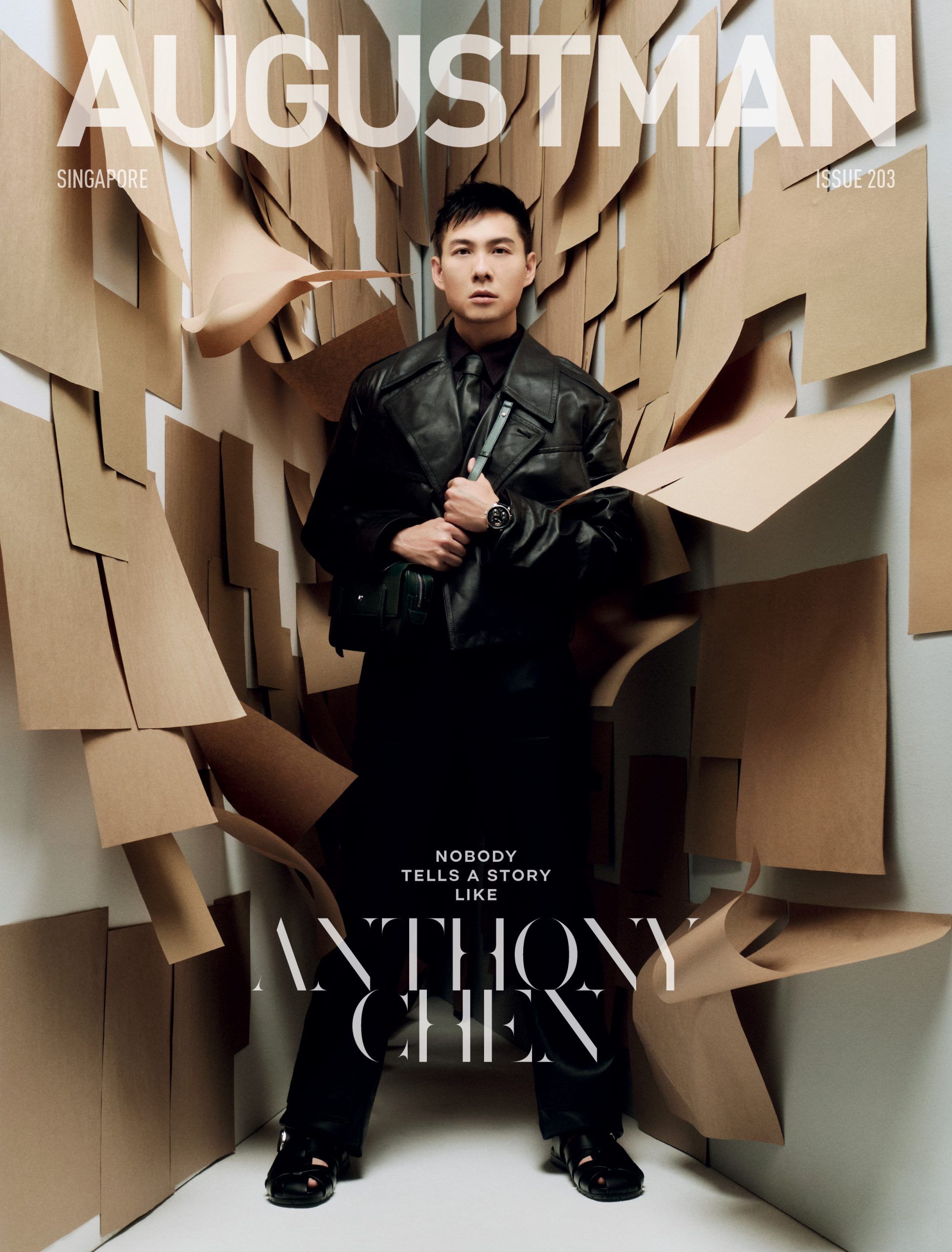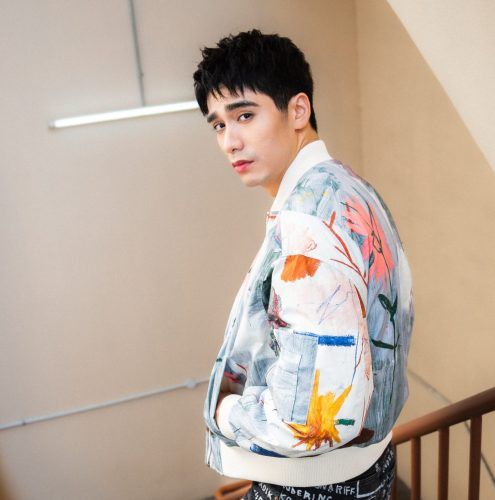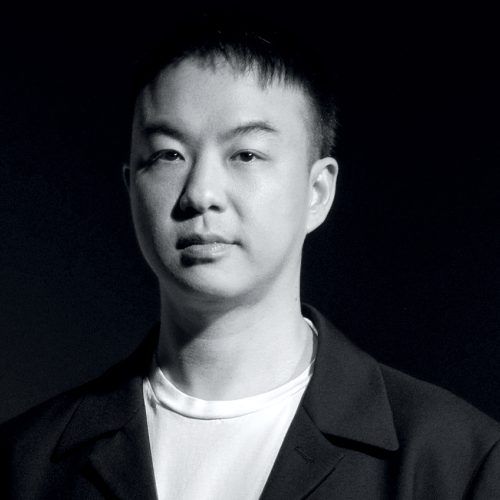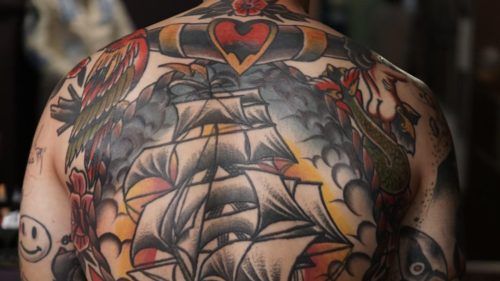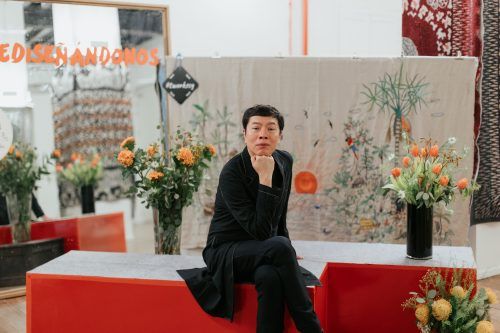This year’s Singapore International Festival of the Arts (SIFA) has been one of the more remarkable ones in recent memory, featuring stellar works by the likes of Edith Podesta, Italian performance artist Andrea Salustri and South Korean theatre performer Jaha Koo. The festival, put together by non-profit Arts House Limited, has come a long way since its inception in 1977 as the Singapore Festival of the Arts. International acts are performing at world-class venues, with attendances growing year by year. But one of the most memorable experiences at this year’s SIFA was £¥€$ (LIES) – which can be read as ‘lies’, ‘eyes’ or Pound, Yen, Euro and Dollar.
In this game-inspired immersive and participatory performance, award-winning Belgian theatre company Ontroerend Goed invites the audience to become part of the super-rich, the elite 1% who control the global economy. The audience will be seated at gaming tables, directed by a croupier, and start their own bank. As they scheme and trade, things get complicated – they face risks, trade in debt, make mergers and acquisitions, even bail one another out if they want to. In the process, they are put in the position of high-ranking bankers, and live the decisions that they have to make, and the consequences that come with it. Depending on how they play, they might make the world a better place – or doom us all to poverty.

It was a visceral experience in the world of finance, but it was also a study in empathy. Very often, bankers and finance industry workers are the scapegoats for our economic malaises, but some of them are really trying their best. Some of them – as the experience put into sharp relief – are just the worst. After its stellar run in SIFA, I sat down with Samir Veen from Ontroerend Goed to find out more.
AM:How did Ontroerend Goed come together? What’s the origin story here?
Samir: It’s pronounced (writer’s note: the best phonetic recreation I can write here is ‘own-through-ren hood’) Ontroerend Goed, which is difficult to pronounce for anyone who doesn’t speak Dutch. Founded by Alexander Devriendt and David Bauwens, and Julie Smit about 25 or 30 years ago. It started off as a few very young poets doing poetry in a pub somewhere. From just doing poetry sessions, they gradually started designing how they were performing the poetry so they were making evenings out of it. And then eventually, it evolved into theater. We made a very big international name for ourselves with a few one-on-one, interactive performances.
How did y0u come up with the concept of £¥€$ (LIES)?
£¥€$ (LIES) originated from the 2008 financial crisis. Banks were failing or collapsing around the globe. Huge, huge financial crisis first in the financial world and then an economic crisis. There was the mortgage failure, and then banks collapsing. It then resulted in businesses going bankrupt and unemployment going way up. People were losing their homes. Very bad stuff. A lot of people got really angry, and rightfully so. They felt betrayed by bankers. Then Occupy Wall Street happens and it was all over the news. It was a very big influence on elections around the world. And then, gradually over the years, things got better and Occupy Wall Street ended. People went on with their lives and then it sort of felt like nothing much had changed.
I think it’s Noam Chomsky who said that if you want society to change, then first you have to get angry. And after that, and this is the hardest part, you have to stay angry. We looked at this thing that happened in the financial world, and we considered the sentiment and meaning behind Chomsky’s quote, and that sparked the first idea to do something with it. It’s not a show about the ultra rich or about bankers. It’s a show about the financial system. So at its core, it tries to show and explain and let people experience how huge an institution money or finance is in our lives. So Alexander (Devriendt), the artistic director of the director of the show, started reading books about finance about money about the economy and tried out a few different versions. We did a lot of research with students. And then we created £¥€$ (LIES) with a group of about 12 or 15 people back in 2016.
How did your experience with money colour or influence £¥€$ (LIES)?
Of course, we live in a capitalist society. So that’s like, influences me every day. But so once again, lies is not about about consumerism or about wealth. It is about money, and the financial system about the concept of what money is. For example, we read a lot of books about money and about the history of money. The Ascent of Money is one of those books. If you look at the American $10 bill, it says, “Bank of America promises to be the bearer of this bill on demand, the total sum of $10.” It says that on the bill. But if you would show that to the bank and they would pay you $10, what would they use to pay you? And that is that is really what the concept of money is. Money is a promise between people and it’s a promise to trust in something being equal for everybody, for me. So this is really what LIES is about trying to let people experience the concept of money.

Was there a point in conceptualizing £¥€$ (LIES) when your own worldview and understanding of money was challenged?
Very nice question. Thank you very much for asking. £¥€$ (LIES) doesn’t try to convey our personal opinion about rich people, or our personal opinion about bankers or about inequality in society. It tries to show what money is. We did a lot of research about that. I started reading about money, financial systems and financial products. I remember this book very accurately explaining what a collateralized debt obligation is. It’s a very complicated repackaging of very risky mortgages and it is one of the big financial products that sparked the financial crisis in 2007. And I remember reading about the collateralized debt obligation and thinking, wow, that is a really good idea. It really sounds like this is something where everybody benefits.
It makes it easier for poor people to buy a house and it makes it easier for banks to lend out money without being too risky. And then when I started reading on it starts explaining how this collateralized debt obligation caused the whole system to come crashing down. And then I realized like oh, yeah, I get it now. I understand why it’s indeed in hindsight, a bad idea. And I remember in 2008 thinking, these bankers they are very greedy, risky people who knowingly took those very big risks and crashed the system and they all end up rich but the rest of us are having to deal with it. Partly, that narrative is true. But then I also think there were a lot of people – and this was something that I hadn’t realized before making this show – that really thought they were doing a very good thing.

So how do you separate political or social commentary from the art of the performance itself?
You know, we feel very strongly that our shows should expose a system and we should leave it up to the audience or people that come for the shows to do their own commentary on it. And of course, in showing or exposing a system, it’s very hard to not take your own opinion in that, but we really don’t want to say to people, this is the world, this is our opinion about it, and take it home with you and see if you agree with us or not. We really want to show them this is how things work. So this is this is what money is.
This is how our financial system works. And we let them experience it by letting them be bankers and try it out and deal with money and deal in the financial world. But we don’t force a worldview on them. We really want the first thing when they exit the show, for people to be really hyped up and excited and they suddenly are talking about these financial products like shorting or buying and trading government bonds and stuff like that. And then usually, I think the realization come to them and they start to think about it, what that means and what that entails. I don’t think it comes during the show, but later, when they think about it, a few hours afterwards or when they talk about it to friends or family.

Did you research or reach out to any one-percenters in researching or putting together this show?
No. We didn’t research the 1%. We researched money and a financial system and the economy. The design of the show does feel really smooth and rich. The tables are very nice mahogany wood. They’re handmade and very well crafted. The costumes we wear are black clothes, but with this very fine golden line on it and it all feels like there’s a richness to it. So I guess for the people that decide to set the costumes, there’s some in-depth research into what what richness is, but we didn’t research rich people in that way.
People’s relationship with capitalism and the ultra-rich differs from country to country.
That is very true. I believe that.
Did you observe any difference in the audience’s reaction to the experience when you toured the world?
The funny thing is – and this is something I don’t think we really expected – is that we found that wherever we play so we played in from like, from London to Kazakhstan to Singapore to Shanghai and Hong Kong and Australia. Many different places, many different cultures, and people tend to react in the same way. So the reaction from the audience or how they, how they performed during the show or how they act during the show, isn’t that different in Hong Kong than it is in London or Australia or in Belgium.
Because wherever you go, it’s not about the rich, but it’s about money. And money really plays the same role in everybody’s life throughout the world. Of course, there’s a huge difference in how am individual reacts to the next. That’s the same in every country. There’s a spectrum of reactions and how people react in a certain way or another way is more or less really the same to different countries. So I’ve played the show about 300 times or something. 15,000 visitors in total. So Alex (Ontroerend Goed Founder Alexander Devriendt) sometimes says, I don’t like interactive theater. And there’s really there’s some truth in that.
We don’t want the visitors to perform in any specific way just because they’re visitors that bought the ticket. They can perform however they want or act however they want during the show. They’re just there to experience what we designed for them. So there’s really no forcing visitors to do anything during the show. There’s options in terms of what they can do: you can invest if you want, you can roll a dice and make money. You’re the bank. It’s your choice. I’ve had visitors who said, “No, I don’t want to do anything.” They just want to sit here, arms crossed. Investing. Don’t roll any dice. Just sit here and watch the rest. It’s entirely possible and they had a great experience.

Having created this, do you wish more can be done in terms of distribution of wealth and social responsibility for the rich?
Personally, yes, of course. I live in the Netherlands and I work a lot in Belgium. Both are countries with a very high average living standard and a lot of wealth. But in both those countries, that wealth is very unevenly distributed. People who are rich won’t necessarily contribute anything good to society, and sometimes the people who contribute a lot are the very poor. So there’s a lot of economic injustice in both countries.
I think there’s a very high need to be able to stabilize the society or the democracy that we live in, to create a more fair distribution of walth. Yes, I think that’s entirely possible. I think there’s a slow but general shift and I think most people in the Netherlands agree with that opinion. However, there are these old systems in place that really unbalance the scales but I think that slowly, very slowly over time, we will see those scales being taken down rather than being built up.

For more information on SIFA, visit sifa.sg



